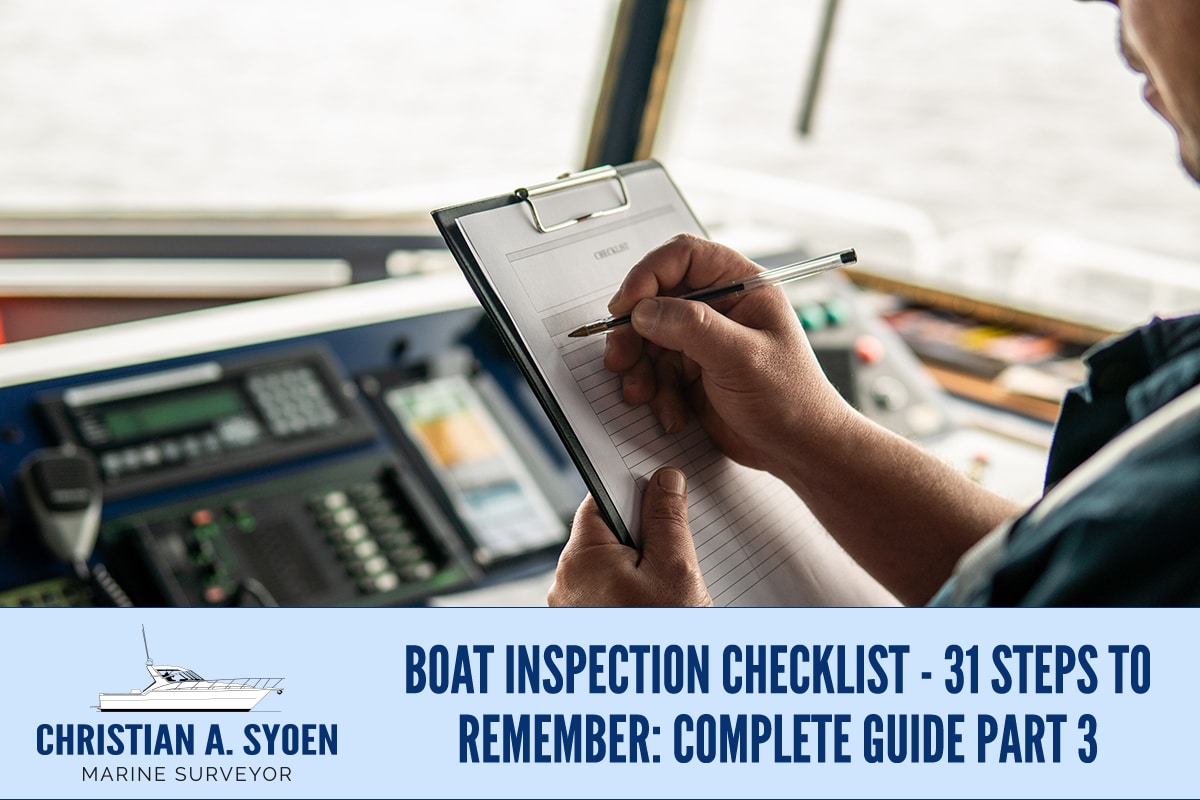Taking the time to thoroughly examine any vessel you’re interested in is a must before you buy. However, there are just so many different components to keep up with it can often be a challenge, especially if you have a diesel engine. That’s why, I’ve gone ahead an made an easy-to-follow list so you never forget to inspect any part of a potential vessel’s interior, exterior, or operating gear!
Engine Integrity
Every part of a ships engine must be examined with the utmost care. Engine beds need to be looked at for signs of cracks, moisture damage, or puddles of water/oil. Motor mounts should be correctly aligned and not cracked or distorted. Coupling shafts should also be aligned correctly, and bolted firmly in place. All hoses should soft and smooth, with no cracks that could potentially let water into the engine block, and clamped ends that aren’t too tight to allow proper flow. You should see that all electrical components, including wiring, are well insulated; keeping a close eye out for naked wires and/or exposed electrical tape. And then, gently depress any and every engine belt you see; any depressions you find over ¼” should be seen as red flags.
Gaskets & Seals
Blocks, manifolds, and oil pans should always be checked for leaks and heat spots that could indicate possible overheating, while fuel filters and tanks are surveyed for leaks and foul odors that can indicate larger problems. This is also a great time to look at all the seals on your lift pumps, fuel lines, and injectors.
Dipsticks
To inspect a ship’s sump pump and transmission gearbox oil, you first need to locate and get a reading on your dipstick. A good trick is not to clean it with a cloth, but your hand. A grittier texture to your oil is a sign of engine wear. If you check the oil color and reading in a second sounding and the lubricant looks bubbly, milky, or smells burnt, the engine block may even be completely cracked.
Impeller Housing
Impeller vanes should be checked out for average wear and tear, or distortions. If you find chips though, the problems might be bigger than you think so tread carefully.
Zinc Anodes
Zinc anodes on propeller shafts, hulls, and engine heat exchanges should all be checked out to ensure they are free from corrosion as it is the only way to properly protect vessel drivetrains from corrosion.
Live Engine Test
The last thing you should do is run a full throttle test to see if there are any other problems trying to stay hidden. While the test is in session you’ll want to keep a close eye out for RPM fluctuations, water temperature, oil pressure, shaft alignment, that all your hoses remain ideally fitted when in use, and that there are no leaks coming from anywhere.
Interested in getting the most thorough, reliable possible inspection you can before you buy? Trust a professional marine surveyor, like me! CAS Marine Surveyor is here protect you from any and all bad investments. You just have to give me the chance. To schedule a survey for your own vessel, or one you’re going to purchase, reach out to Christian A. Syoen of CAS Marine Surveyor today by calling 1.810.531.0992 or fill out the form in the sidebar to schedule your free consultation.
